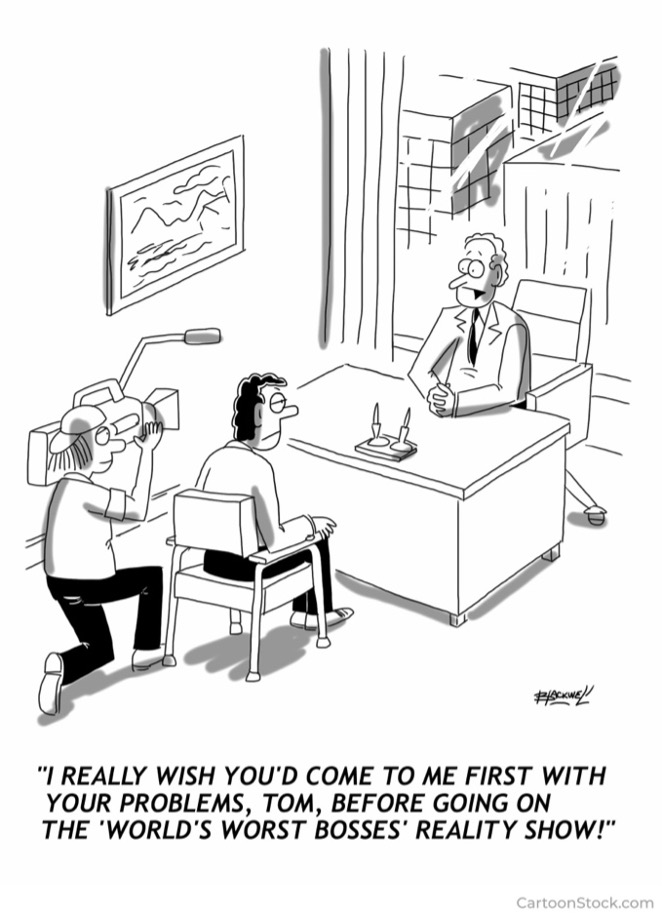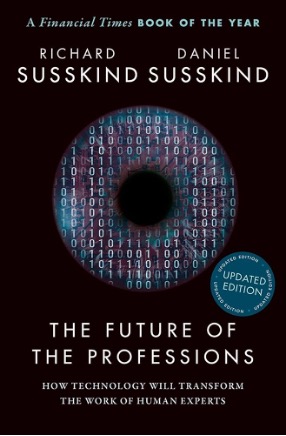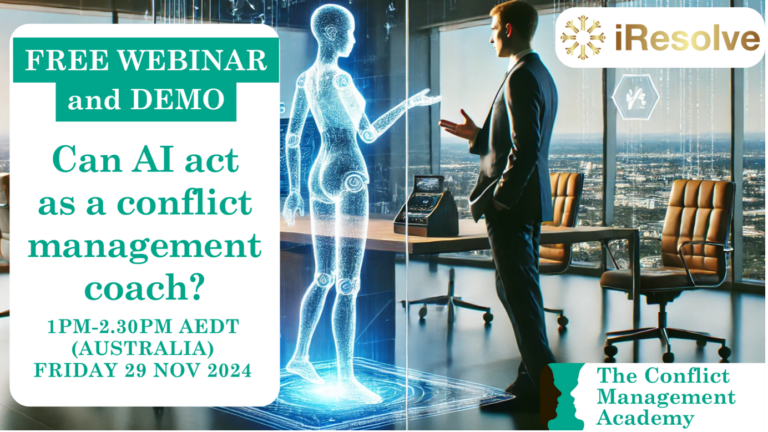In many workplaces, policies around conflict between employees say something to the effect that the person should first try to resolve the matter directly with the person with whom they are in conflict. If that is not successful or not possible, then they should raise the matter with their line manager, and/or a representative from Human Resources. As a last resort, a formal grievance can be submitted.
As most practitioners who work with clients in workplace conflict know, there is frequently slippage in the early stages of this process. Many people in conflict do not have the courage or skills to address the problem directly with the other person, and many are also resistant to raising them with a manager or HR representative until absolutely necessary. This means, in effect, that people either lump it, or the conflict festers until it escalates to a point that it is much harder to manage and resolve.

Many conflicts in the workplace begin over small differences, that could be managed effectively and reasonably easily early on. However, when these are unaddressed, they tend to accumulate and fester, and can result in higher level conflict, employee disengagement and unhappy workplaces. Employees don’t want to go to their manager or HR with what might be seen as a trivial conflict. They are too embarrassed to seek help. These small conflicts are not the ones that need an external coach or mediator to facilitate. This would not be cost effective. And yet, these small conflicts can form the foundations for larger, more damaging consequences if they are not managed well.
What needs to happen to fill that gap? AI has been suggested as a possible solution. Despite many people feeling sceptical about the ability of artificial intelligence to provide support to people in conflict, recent developments in training specialised AI tools has shown surprising results.

As Richard and Daniel Susskind state, in their book The Future of the Professions: How technology will transform the work of human experts, “Machines are becoming increasingly capable and are taking on more and more of the tasks that were once the exclusive province of human professionals.” While they acknowledge that in some situations, there’s no replacement for an empathetic human, they argue that many of the recipients of professional service are in fact seeking a trustworthy solution (such as guidance for managing conflict) or particular outcome (resolution of their conflict) rather than an empathetic adviser per se. To slightly adapt an anecdote they provide about neurosurgeons, workers do not want coaches or mediators, what they want is a way to effectively manage their conflicts. AI might be able to provide this well enough, and be more accessible and cost-effective.
They suggest that:
“As we progress into a technology-based Internet society, however, we claim that the professions in their current form will no longer be the best answer to those needs. To pick out a few of their shortcomings—we cannot afford them, they are often antiquated, the expertise of the best is enjoyed only by a few, and their workings are not transparent. For these and other reasons, we believe today’s professions should and will be displaced by feasible alternatives.”
When I was approached by some developers who were working on an AI tool to provide conflict support to employees for low level conflict in organisations, I was sceptical but curious. I agreed to come on board as an adviser. The developers then ‘trained’ their AI tool using my REAL Conflict Coaching System. When I saw the results of this training, I was astonished. It’s not perfect, but which coach ever is? It’s not exactly coaching as I’d describe it, more like a human resources professional with good knowledge and skills in workplace conflict management. But it has real potential to fill the gap I referred to earlier.
Would you like to see the iResolve app (in its current stage of development) in action? I have permission to give a demo to people who are interested, in return for your feedback.

Join me from 1pm-2.30pm Australian Eastern Daylight Savings Time (AEDT) Friday 29 November.
It’s free, but you need to register here: https://conflictmanagementacademy.com/webinar-ai-conflict-coach-registration/

